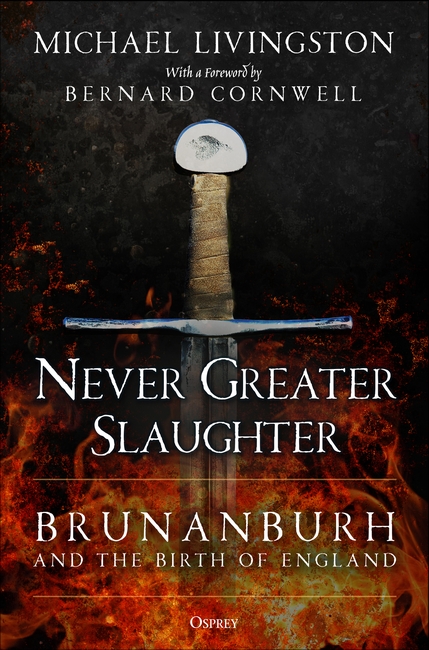Professor Michael Livingston is the author of Never Greater Slaughter: Brunanburh and the Birth of England, the remarkable story of a forgotten fight for England’s survival. In a series of posts for Osprey, he’s sharing parts of the tale. Today, he wonders about the connection between Beowulf and the great battle…
I talked last week about a political question that still niggles when it comes to Brunanburh. As we’ve seen, this was an existential fight for the future of England, and it seems all the other major political players in the British Isles were there. So where were the Welsh? It’s just one of a great many questions that historians are beginning to ask about this conflict.
Today, I want to talk about a very different angle to Brunanburh.
Namely, what has Beowulf to do with Brunanburh?
We don’t know exactly when Beowulf, that great epic of early England, was composed. J.R.R. Tolkien believed the poem took form no later than the eighth century. Others think it more recent in construction. We know, though, when the one surviving text of it that we have was written down: sometime between 975 and 1010, two people copied it out – probably from an existing text – into a manuscript now called Cotton Vitellius A. xv, housed in the British Library.
Whenever Beowulf was first dreamed up, in other words, we know it was being copied out and preserved – in English – within 40 to 60 years of Brunanburh.
Why does that raise my eyebrow?
Well, as I argue in my book Never Greater Slaughter, the likely prime mover of the massive alliance that came against King Athelstan and the English in 937 was the Viking king from Ireland, Anlaf Guthfrithson. Our sources in the years afterwards certainly foregrounded the Viking leader at Brunanburh, as well as the continuing significant Viking threat more generally through the decades to come.
Yet Beowulf tells a story that takes place in the very heart of the Viking homelands, from the lands of the Geats – a sliver of land between what we’d today think of as Norway and Sweden – and the lands of the Danes across the “whale-road” in Denmark. The poem’s hero and namesake is a Geat warrior who travels by longship upon that sea. Defining the word ‘Viking’ can be difficult – I discuss this in Never Greater Slaughter – but however one defines it, Beowulf has an awful lot in common with the Vikings who were threatening England than with the English themselves.
So why, after the Vikings (and the Scots and Britons and others) had very nearly destroyed England at Brunanburh in 937, were the English preserving an epic poem about a heroic figure among the ancestors of that very enemy?
Beowulf, seen from this perspective, is something like an American composing an epic story about a Russian hero of the Soviet Union.
To return to Beowulf, we don’t know that it has connections to Brunanburh, but the possibility might beg some questions. For instance, is the poem’s preservation of a heroic ancestor to an enemy of the state a rebellious act against that state itself? Or does it mean that the English poet (and his audience) had a far more nuanced understanding of the socio-political history of Scandinavia than we might otherwise assume? Perhaps, for example, the English crown’s association with certain Continental traditions might have been understood by them as an association with certain Continental peoples, like Beowulf and his Geats, who were both a part of their current enemy’s past and also apart from it. Or perhaps the English writing about Beowulf was a way of usurping the enemy’s past and claiming it for themselves.
Or perhaps Beowulf can be perceived as a poem with a kind of populist edge in a post-Brunanburh England: the scribes who copied it down, by preserving its story of a great hero in the ancestry of the Vikings, built up the power of an enemy that the English had defeated in battle in 937. By making their enemy greater, they might have made themselves even greater still for having defeated them.
There’s a common tendency to split the fields of literature and history. Sometimes this means ignoring the historical circumstances in which works of literature (like Beowulf) made their home. Sometimes it means ignoring the amazing works of literature that can help us paint a picture of historical circumstances (like Brunanburh).
One of the many things I hope I’ve achieved in Never Greater Slaughter is the revelation of what magic can happen when we treat both history and literature as equal contributors to our understanding of the past.
Never Greater Slaughter publishes is out now. Get your copy from the website or Amazon today!


Comments
You must be logged in to comment on this post. Click here to log in.
Submit your comment